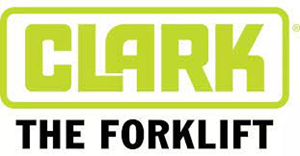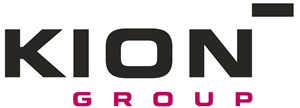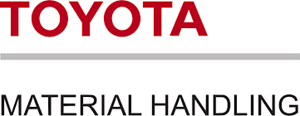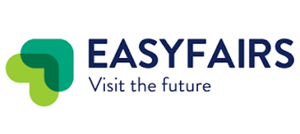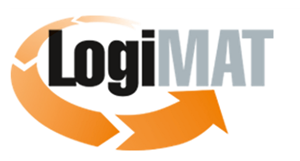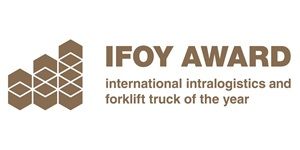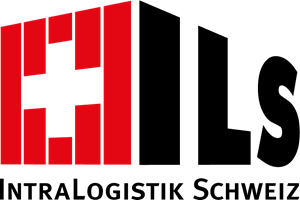WWW.LOGISTICSINNOVATION.ORG

The online magazine for Switzerland, the EU and the rest of the world

High destructive potential
October 30, 2025
As feared, the US tariffs are causing a collapse in tech exports. According to Swissmem, the resulting negative effects took full effect within seven weeks in the third quarter. Exports from the Swiss tech industry to the US plummeted by 14.2% compared to the same quarter of the previous year .
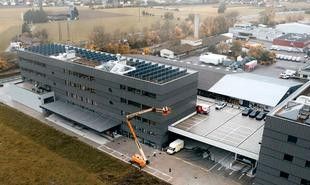
Swiss Logistics Campus in Zofingen officially opened
October 29, 2025
Numerous visitors, friends and the entire crew of the new Swiss Logistics Campus of the Swiss Association for Vocational Training in Logistics, Swiss Logistics by SVBL ASFL, found their way to the official opening of the impressive new location in Zofingen over the weekend.
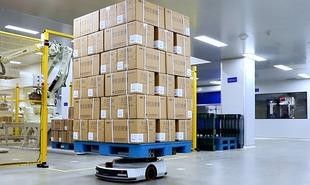
Leading in intralogistics with robots
October 29, 2025
the International Federation of Robotics' (IFR) annual report "World Robotics 2025 - Service Robots," approximately 102,900 robots for transport and logistics tasks were sold worldwide in 2024. Sales increased by 14 percent in 2024. More than three-quarters came from Asia, and 11 percent from Europe.
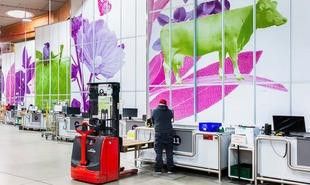
"Organic" combined with high tech
October 29, 2025
High-tech and products processed from natural ingredients are not mutually exclusive. "Organic" does n't mean everything is done manually, but rather that it adheres to high ecological standards. This is also true for the organic wholesaler Weiling, where an AutoStore system has recently enabled peak logistical performance.
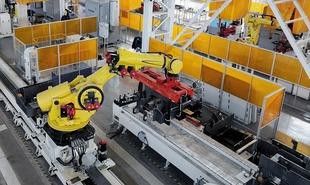
Ready for the "Great Leap"
October 28, 2025
Founded in Xuzhou in 1943, the Xuzhou Construction Machinery Group (XCMG) generates approximately €13 billion in revenue with 13,000 employees worldwide. Its portfolio includes construction machinery, cranes, commercial vehicles, and a growing range of material handling equipment and port handling machinery.
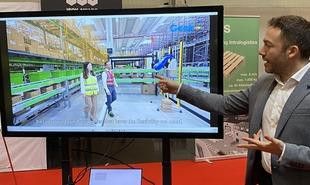
Completely unmanned logistics?
October 28, 2025
Warehouse robotics specialist Geekplus is launching its new picking station "Geek+ Brain," ushering in a new era of warehouses operating entirely without human workers. CEO Yong Zheng " a major step from partial automation to full process intelligence . "
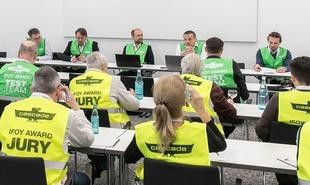
Start of the IFOY countdown
October 28, 2025
Applications for the IFOY Award 2026 are still open. The submission period is now in its submit products and systems for the prestigious award until October 30th

55 percent more orders
October 24, 2025
Revenue of the intralogistics specialist TGW, which plans, builds, and maintains highly automated logistics centers, slightly exceeded the previous year's all-time high of €1.07 billion in the 2024/2025 fiscal year . Order intake reached €1.5 billion, and the number of employees rose to 4,645.
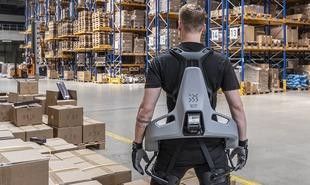
With brains on the spot
October 24, 2025
Robotics provider German Bionic is presenting a new AI-assisted exoskeleton called "Exia" at this year's A+A – the world's leading trade fair for occupational health, safety, and ergonomics. According to the company, this is the world's first exoskeleton controlled by augmented AI with high levels of comprehension.
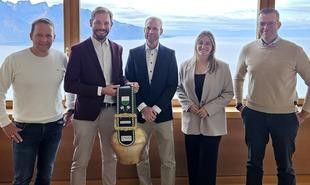
Train protection at Rochers-de-Naye
October 23, 2025
Transports Montreux-Vevey-Riviera (MVR) is modernizing its railway infrastructure on the line connecting Montreux to Rochers-de-Naye, offering spectacular views of the Vaud Alps and Lake Geneva, using Stadler's CBTC signaling technology.
Better exploit potential
WAGNER Switzerland AG
Better exploit potential
February 7, 2024
Photo: THD
More than 1,300 km of railway lines could be reactivated in Germany, according to a study of 115 project proposals. However, only 8 km of the rail network were reactivated in 2022, and not a single line in 2023. The "Allianz pro Schiene" (Pro-Rail Alliance) is calling for greater inclusion of freight transport. Switzerland serves as a model.
The potential for reactivating railway lines in rural areas is far from being fully exploited. This is the conclusion of a study by the Deggendorf Institute of Technology, in which 115 reactivation projects across Germany participated. So far, only one-tenth of the initiatives have successfully revived a line. A study by the Leibniz Association also identifies untapped potential. The Pro-Rail Alliance is also calling for a more active role from the federal government to ensure faster success of reactivation projects.
The study's scientific director, Professor Johannes Klühspies, stated: "The biggest obstacle to these projects is the so-called economic viability hurdle, meaning that the reactivation must be economically viable."
Last year, the Pro-Rail Alliance (Allianz pro Schiene) had already pointed out that the number of feasibility studies for reactivations in Germany had risen sharply. Together with the Association of German Transport Companies (VDV), the non-profit alliance had calculated that feasibility studies produce positive results in more than 75 percent of cases. However, the managing director of the Pro-Rail Alliance, Dirk Flege, complains that progress is too slow: "We are seeing a huge backlog in implementation. We need to move eight times faster in Germany than before if the public sector wants to implement just those reactivations for which positive feasibility studies have already been submitted by 2030." That would be the 1,300 km of rail line.
Flege: "All federal states need a clear reactivation strategy with concrete timelines so that local actors do not waste years and decades without making progress."
Freight transport is often neglected by local stakeholders when it comes to line reactivations. Klühspies: "Freight transport often requires additional investments because it involves higher loads than passenger transport. Loading ramps and freight handling areas also urgently need to be planned here. Therefore, the right incentives are needed to ensure that rail freight transport is also meaningfully integrated into the reactivations." Such as the Zentralbahn in Switzerland.
The Leibniz Association says that freight transport must be considered much more strongly in the reactivation projects than before, also in order to better connect commercial areas to the rail network.
The Pro-Rail Alliance is calling for a federal program specifically for freight transport. Flege stated: "The federal government already covers 90 percent of the costs of reactivating passenger lines. There is currently no such funding for freight transport. Therefore, a separate budget item would be the preferred option."
Download the study by TH Deggendorf
|
